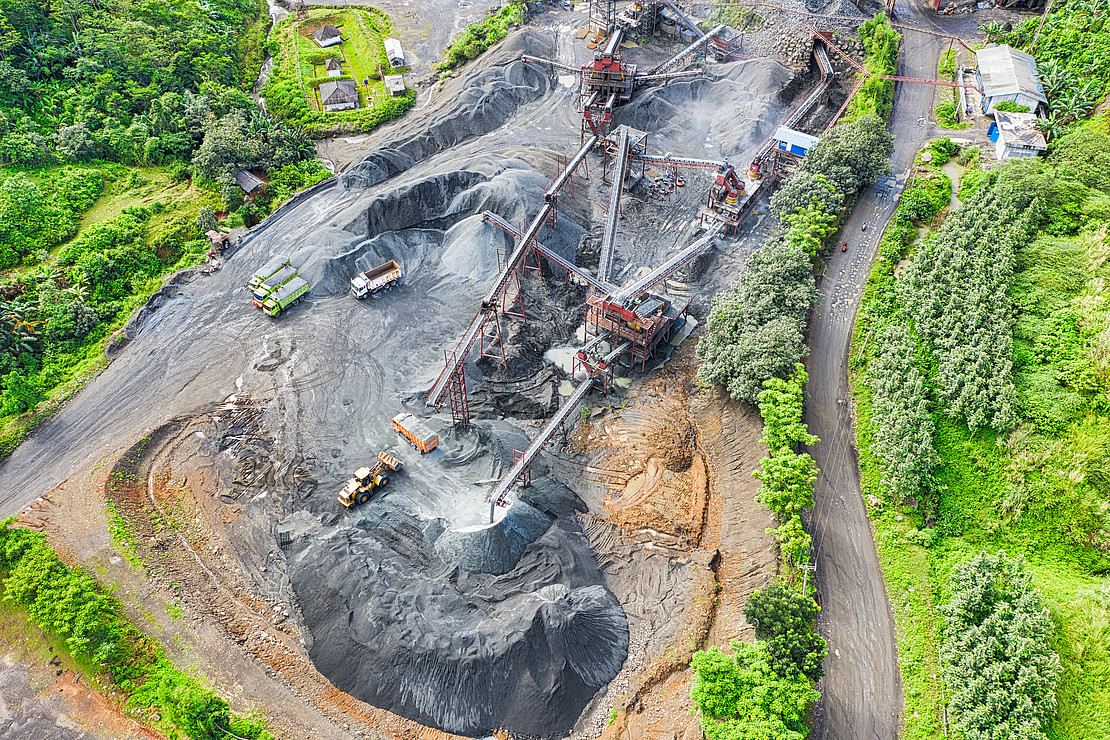This page contains automatically translated content.
New joint project on raw material extractivism in Latin America and the Maghreb
 Image: Tom Fisk
Image: Tom FiskUnder the title "Commodity Extractivism in Latin America and the Maghreb", the network brings together an interdisciplinary and international team of researchers and visiting scholars to explore the development model of commodity extractivism. Extractivism is the term used when economic production is largely based on the extraction and export of non-renewable raw materials. Many countries in the Global South practice commodity extractivism; Latin America and the Maghreb are exemplary for this model.
The guiding hypothesis is that despite major cultural, social, or religious differences, similar social patterns emerge in different regions of the world as a result of resource exploitation. "Whether through unstable prices or fluctuating demand, commodity extractivism is prone to crises and leads to economic, political, and social dislocations. The ecological transformation in the West may even exacerbate such crises: On the one hand, sustainability policies aim at decreasing raw material use and thus deprive raw material societies of their economic basis. On the other hand, environmental strategies such as electromobility are based on a new, often highly polluting exploitation of resources (e.g. lithium)," explains Prof. Burchardt.
The project examines this dark side of the ecological turnaround in Latin America and the Maghreb in a transregional perspective.
In countries such as Morocco, Algeria, Tunisia, Chile, Venezuela and Ecuador, the crisis scenarios, possibilities for change as well as the persistence of the development model of commodity extractivism will be analyzed. "The project aims to understand extractive societies not as a deviation from the Western development path, but in their own logic, and combines a strong empirical focus with theory work" explains Prof. Ouaissa. Methodologically, an arc is drawn from broad field research on the ground to a stringent transregional comparison, thus expanding the state of knowledge of (cross-)area studies.
"This exciting project points to the existential need to think development sustainably. The newly founded Center for Sustainable Development and Transformations (working title) at the University of Kassel will pursue similar perspectives in teaching and research and offers the project network numerous points of contact," comments the Vice President of the University of Kassel and member of the CELA Board Prof. Dr. Ute Clement.
In addition to innovative research and the promotion of young scientists, a broad transfer of knowledge into politics and society and especially into development cooperation is planned. A Kassel-Marburg lecture series is planned for the involvement of students from the two universities but also the broader public.
"The project will not only strengthen academic cooperation in the field of regional studies at the two campuses in Kassel and Marburg, but also dovetail the two Maria Sibylla Merian Centers in Mexico and Tunisia, CALAS and MECAM, in the transregional comparison between Latin America and the Maghreb," clarifies Marburg's Vice President for International Affairs and Research, Prof. Dr. Michael Bölker.
The project is divided into three phases: First, the development model of extractivism will be conceptualized and, following existing theoretical approaches in its transregional variances, made accessible to a deeper analysis of particular development patterns, especially in its social and political internal effects. In a second phase, the project will deepen the investigation of established patterns of distribution, conflict, and legitimation. Under what conditions do these patterns enable the transformation capacity of resource-exporting societies and where do they hinder it? Next, the extent to which the development model extends into everyday life and influences culture and habitual routines is examined. This is followed by the question of under which conditions crises support the permanence of the development model via hardening or promote transformations via the dynamization of these factors. Intensive field research in three countries per region and an intra- as well as interregional comparative design guide the process of discovery. The project phases are accompanied by an international scholarship program at both locations.
For more information on the project, please visit www.extractivism.de
Contact:
Jan Michael Vogt
University of Kassel
Maria Sibylla Merian Center for Advanced Latin American Studies (CALAS)
Tel. +49 561 804 4907
E-mail: vogt[at]uni-kassel[dot]de
Prof. Dr. Hans-Jürgen Burchardt
University of Kassel
Maria Sibylla Merian Center for Advanced Latin American Studies (CALAS)
Tel. +49 561 804-3253
E-Mail: magura@uni-kassel.de
Prof. Dr. Rachid Ouaissa
Phillipps University Marburg
Maria Sibylla Merian Centre for Advanced Studies in the Maghreb (MECAM)
Tel. +49 6421 28-24956
E-Mail: ouaissa[at]staff.uni-marburg[dot]de